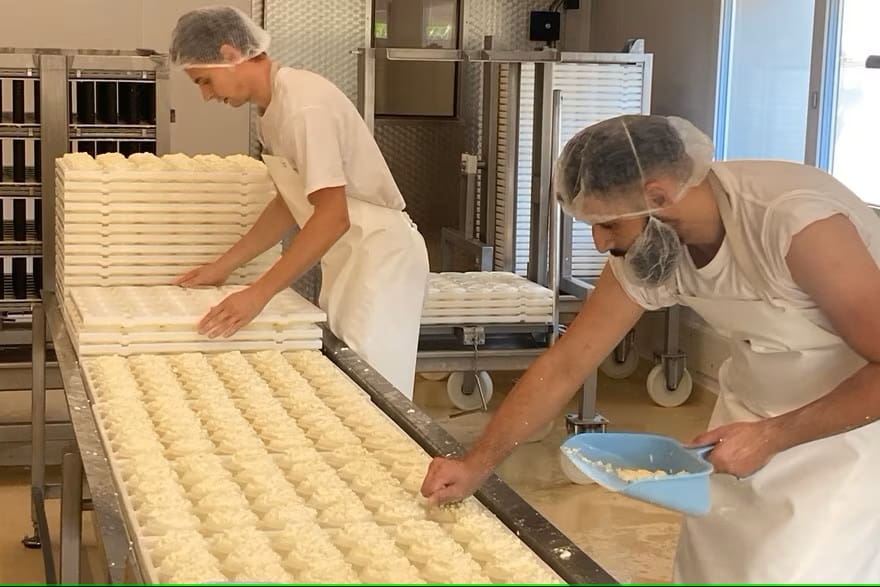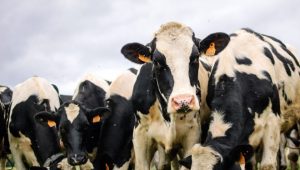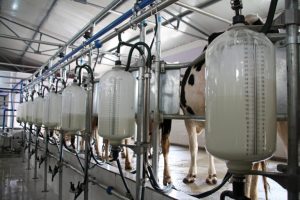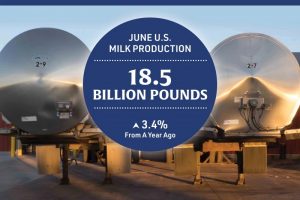
In a green Swiss valley, two young people from different worlds – Syria and Italy – share the same passion. The dairy industry is short of skilled workers, giving the pair a chance to start a new life in Switzerland.
“I’m proud to be a cheesemaker,” says Yammen, his eyes brimming with enthusiasm. Next to him, Andrea adds rennet to the goat’s milk after checking its temperature. We are at the Gohl cheese dairy in the Emmental valley, canton Bern.
This rolling landscape, dotted with traditional farms with red geraniums in the windows, is the birthplace of the famous Swiss cheese with holes. A babbling river flows through the valley. From afar comes the tinkling of cowbells. It is a bucolic scene which, until a few years ago, Yammen did not even know existed.
Yammen is a 28-year-old Syrian refugee. “I fled from Hama, a city in central Syria, six years ago. I could not serve in an army that would have forced me to kill my own countrymen,” he says. He first reached Turkey, where he stayed for six months, waiting for his family – his mother, two brothers and a sister – to join him. His father died when he was five.
Once reunited, the family continued their journey together. “We made it to Greece by dinghy, but got stuck there for a year,” he says.
In 2016 they were unable to move on following the closure of the Balkan route. We ask him to tell us about the reception centres where they stayed. He looks down from his full six feet, as if having to explain to a child what it means to be a refugee. “There were no centres for asylum-seekers. We lived on the streets, in very tough conditions.”
Then came an unexpected turn of events. In 2017, thanks to the UNHCR resettlement programme – of which Switzerland is also part – he and his family boarded a plane to Zurich. They were assigned to the centre for asylum-seekers in Konolfingen, canton Bern. Six months later, they were transferred to Langnau.
Yammen was 22 with a future ahead of him. “I immediately set about learning the language and a trade.” He attended the vocational school in Langnau and did various work placements, including as a plumber and carpenter. But when he did a week’s training at Gohl dairy, it was love at first sight. “I want to become a cheesemaker,” he told himself. Today he is proud to produce Emmentaler PDO, one of the symbols of Switzerland and now a symbol of the turning point in his life.
Solid prospects
After all this talk, the curd is now ready. Yammen checks its consistency before instructing Andrea, the apprentice cheesemaker, to cut it with the lyre. “Haste makes waste, especially in this line of work,” Andrea says. Despite being a novice – he started his apprenticeship in early August – he has already learnt one of the main secrets of making good cheese: patience. And so, while we wait for the curd to lose some whey, he has time to tell us about himself.
Andrea is from Brescia, in northern Italy, and is 27. He first came to Switzerland as a tourist via the Workaway platform, an online site that connects host families and volunteers from all over the world. He found free room and board on a farm in the Jura, in exchange for a few hours of work a day. Fed up with his job as a metalworker, he needed a break to clear his mind. “In Switzerland, I found my balance again,” he says. “I like peace, living in close contact with nature and animals.”
After returning to Italy, he found a position as a trainee on a farm in the Emmental region. By a happy coincidence, he ended up at Gohl. “The farmer I’m staying with delivers milk to this dairy,” he explains. “When he learnt that I wanted to become a cheesemaker, he asked the management if I could do a week’s training.”
Despite Andrea’s rudimentary knowledge of German, the Gohl cheese dairy offered him an apprenticeship as a milk technologist. He now works there four days a week and spends one day at Langnau vocational school.
“Becoming a cheesemaker was not in my plans when I left Italy,” Andrea admits. “But after discovering this world, I realised that this profession offered me solid prospects for the future, both here and in Italy.”
Motivation and willpower
It is now time to return to the goat’s cheese. Yammen is already at work. He pours the curd onto a steel table before transferring it into little pots that will give the cheese its shape.
“It takes practice to do this job,” he explains. “They must not weigh than less 130 grams, otherwise we can’t sell them.” Although he has been working at Gohl for only four years, Yammen can spot cheeses that are too big or too small at a glance. He removes some of the curd from one mould and adds it to another. Andrea, meanwhile, cleans the white plastic tubs that previously had the goat’s milk in them.
Andrea and Yammen work together in harmony, barely uttering a word. They are a close-knit team. Hansueli Neuenschwander, the dairy’s manager, recognised their potential when he took them on. “The dairy industry has been up against a shortage of skilled workers for some time,” he explains.
Roland Tanner, head of communications of the Swiss dairy association, confirms this. “As in almost all sectors, a shortage of specialised staff will be one of our biggest challenges in coming years.”
Gohl cheese dairy is about ten minutes by car from Langnau. Getting there by public transport is complicated. The manager is aware that those who decide to undertake an apprenticeship there do not do so for convenience. “It takes a good dose of motivation and determination,” he says. “These two qualities also make it possible to overcome language barriers.”
Yammen is proof of this. In 2021 he successfully completed his apprenticeship as a dairy technologist. He has been working in Gohl for four years and would not dream of doing anything else. “I have a good life here. I have a job and a home. That’s enough for me,” he says.
Andrea, meanwhile, still has to settle in. Everything is new to him: the early starts in the morning, the language, the work. “At the moment I like everything,” he says. “It’s not always easy, but seeing that Yammen did it gives me confidence. I also want to become a cheesemaker.”




















